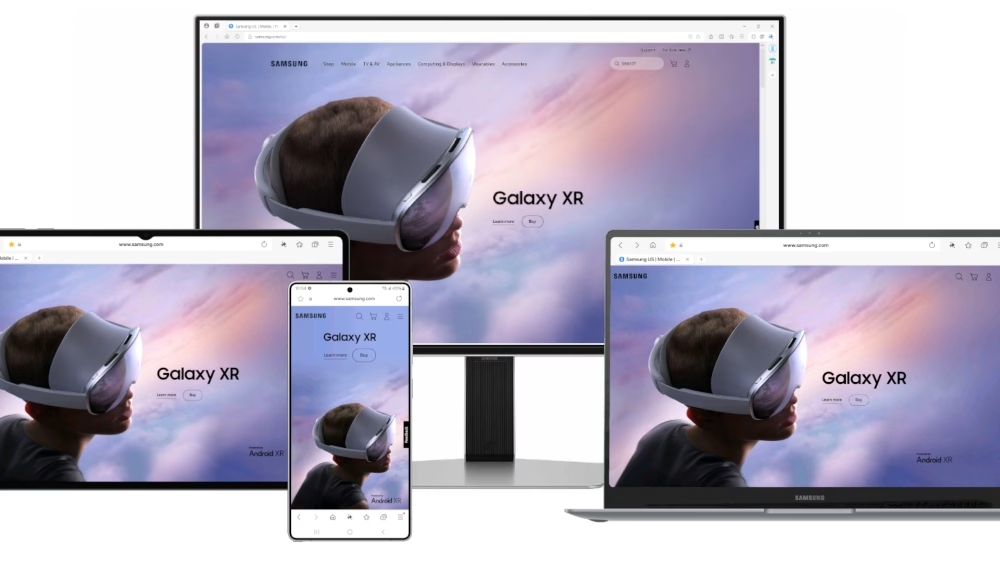Samsung has launched a beta program for its Samsung Internet browser, extending its popular mobile browsing experience to Windows PC users. Announced on October 29, 2025, this strategic expansion aims to create a more integrated ecosystem for Galaxy device owners, offering seamless cross-device syncing of tabs, bookmarks, and passwords between smartphones and desktops. The move signifies Samsung's intensified focus on software services, providing a direct competitor to established browsers like Chrome and Edge, particularly for those deeply invested in the Samsung Galaxy ecosystem.
Key Features and Cross-Device Integration
The new Samsung Internet PC beta is built on a Chromium engine, ensuring compatibility with a vast array of extensions available through the Chrome Web Store. A standout feature is its robust cross-device synchronization, enabling real-time sharing of open tabs, browsing history, and saved credentials across connected Galaxy smartphones and Windows PCs. This enhanced interoperability is a significant leap, moving beyond mobile-only syncing to a truly integrated desktop experience.
Beyond basic sync, the browser introduces several AI-powered enhancements. "Smart Summary" leverages on-device AI to condense lengthy web articles into concise summaries, improving information consumption. There's also a "Privacy Shield" feature, designed for automatic tracker blocking, addressing growing user concerns about online privacy. For multimedia enthusiasts, the browser boasts hardware-accelerated 4K and 8K video playback, complete with a low-latency mode optimized for streaming, which is a real boon for content creators and consumers alike. Performance improvements over its mobile predecessor include faster load times and reduced memory usage, reportedly up to 20% less than Chrome on similar hardware, according to Samsung's benchmarks.
Beta Program Availability and Technical Specifications
The beta program, designated version 1.0.0, became available for download via the Microsoft Store on October 29, 2025, primarily targeting Windows 10 and Windows 11 users. Prospective testers need a Samsung account to sign up for access. While the beta is free, a full stable release is currently slated for early 2026, likely within the first quarter. System requirements are relatively modest, demanding a 64-bit Windows 10/11 system, a minimum of 4GB RAM, an Intel Core i3 or equivalent processor, and 500MB of storage.
Initial rollout has been concentrated in key markets including the US, South Korea, UK, Germany, and India, with plans for broader expansion across other European and Asia-Pacific regions by November 2025. Regional optimizations include Naver search integration for South Korea and enhanced data saver modes for low-bandwidth connections in India. However, the browser is not yet available in China due to regulatory complexities, and there's no official word on macOS or Linux support, as the current focus remains on the Windows platform.
Community and Expert Reception
Early reactions from the tech community and industry experts have been largely positive. Users on platforms like Reddit and X (formerly Twitter) have praised the seamless tab syncing functionality, with many calling it a "game-changer" for their daily workflow between Samsung phones and PCs. While some beta testers reported minor bugs, such as occasional extension crashes, the overall sentiment points to high anticipation. Over 50,000 beta sign-ups were reported in the first 24 hours alone, though this figure remains unverified by Samsung itself.
Tech reviewers have also weighed in. Experts from The Verge rated it 8/10 for its ecosystem integration, describing it as "a solid Chrome alternative with Samsung flair," though noting it isn't "revolutionary yet." Android Authority highlighted its robust privacy features as a key differentiator. Analysts from Gartner suggest the browser could capture up to 5% of the global PC browser market within a year, provided any initial bugs are swiftly addressed. This beta provides a critical avenue for users to test and provide feedback to help shape the future of browsing.
Strategic Implications for Samsung's Ecosystem
This expansion to PC marks a pivotal moment for Samsung, signaling its ambition to strengthen its software ecosystem and reduce reliance on third-party services, particularly Google's. By offering a proprietary browser that integrates natively with its vast array of Galaxy devices, Samsung aims to foster greater user loyalty and reinforce its position as a holistic tech provider. This move aligns with broader 2025 tech trends, which emphasize AI integration and cross-device continuity.
The launch could potentially disrupt the browser market, currently dominated by Chrome, by offering a compelling, privacy-focused alternative for a significant segment of Windows users who also own Samsung devices. It builds upon previous mobile-only betas but significantly broadens the potential user base from hundreds of millions to billions of PC users globally. If successful, Samsung Internet for PC could become a cornerstone of the Galaxy ecosystem, creating a more cohesive and deeply integrated experience for its dedicated user base.
